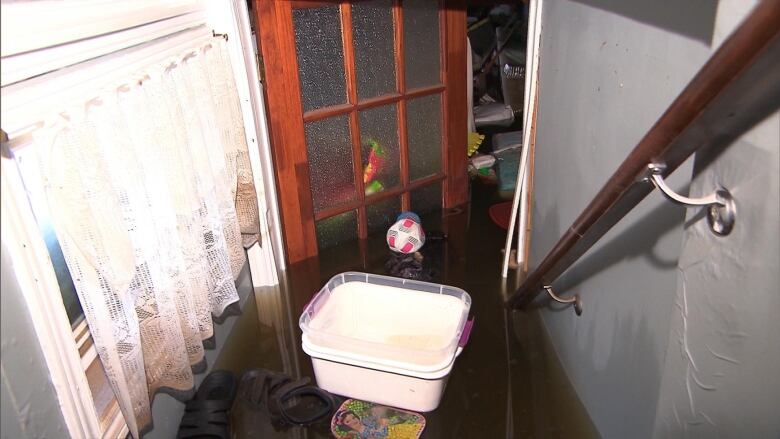Flood victims returning home face health risks, experts say
Experts say flood-soaked belongings are likely contaminated with toxins

Water levels are finally receding in Quebec, allowing many homeowners to return home to begin the cleanup.
But experts and city officials are warning people to take health and safety precautions because most of their belongings are likely contaminated.
- Complete coverage of the 2017 Quebec floods
- Rigaud threatens up to $5K in fines for those who won't leave their homes
"It might not be possible to recover everything," warns Sarah Dorner, the Canada research chair in source water protection.
"The best thing to do would be to follow the public health advisories that municipalities issue what people should throw in the garbage, what people can clean."

"It mixes with all of the chemicals in people's homes. It mixes with heating oil."
1st things to check
The City of Montreal says some residents who were forced from their homes can start to return today, oncefirefighters have carried out a preliminary inspection to make sure the premises aresafe.
City officials are urging those residentsto follow these tips as soon as they walk through their front doors:
- Inspect the building's structure.
- Test the smoke detectors and carbon monoxide detector.
- Look for the presence of mould.
- Document all the damage (photos, written log).
Homeowners who need more information about what to do once they go home, such as how to restore their electricity, gas or water, can call 311 or go to the city's civil security websitefor more information.
Dorner says the good news is that the seasonal fecal contamination caused by the annual snowmelt is long over. Her tests show E. coli contamination of the floodwaters in rivers is relatively low.
She says treated municipal drinking water should be OK to consume, but it's best to check with your municipality first.
With files from CBC's Justin Hayward












_(720p).jpg)


 OFFICIAL HD MUSIC VIDEO.jpg)
.jpg)



























































































